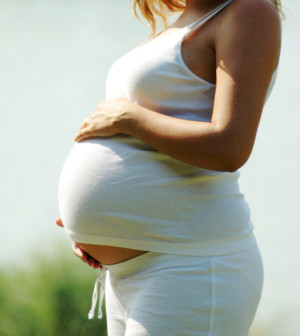- Could Your Grocery Store Meat Be Causing Recurring UTIs?
- Are You Making This Expensive Thermostat Error This Winter?
- Recognizing the Signs of Hypothyroidism
- 10 Strategies to Overcome Insomnia
- Could Artificial Sweeteners Be Aging the Brain Faster?
- Techniques for Soothing Your Nervous System
- Does the Water in Your House Smell Funny? Here’s Why
- Can a Daily Dose of Apple Cider Vinegar Actually Aid Weight Loss?
- 6 Health Beverages That Can Actually Spike Your Blood Sugar
- Treatment Options for Social Anxiety Disorder
Teething Makes Babies Cranky, But Not Sick: Review

Teething can make babies miserable, but it rarely causes fevers above 100.4 degrees Fahrenheit, or any other signs of illness, a new review finds.
The analysis, published online Feb. 18 in the journal Pediatrics, found that teething most often just causes babies to be a little crankier, drool more and rub their irritated gums.
And while some infants have a slight rise in their temperature, teething usually does not cause a full-fledged fever — or any other signs of illness, according to the researchers led by Dr. Michele Bolan, of the Federal University of Santa Catarina, in Brazil.
It’s very common for parents to be confused about whether certain symptoms are related to a baby’s teething or an illness, said Dr. Minu George, interim chief of general pediatrics at Cohen Children’s Medical Center, in New Hyde Park, N.Y.
“I get questions about this on a daily basis,” said George, who was not involved in the study.
If a baby’s temperature rises to 100.4 degrees F or higher, George said, then it’s a fever — and not just a mild temperature elevation from teething.
“Fevers are not a bad thing,” she pointed out. “They’re part of the body’s response to infection.” But, George added, parents should be aware that a fever is likely related to an illness.
Dr. Rosie Roldan is director of the pediatric dental program at Nicklaus Children’s Hospital, in Miami. She agreed that parents often mistakenly attribute fevers or other symptoms to teething.
“But at the age where teeth are erupting, babies are also being bombarded by infections,” said Roldan. “And we don’t want to miss that bigger picture.”
Besides fever, Roldan said, some other symptoms that should not be attributed to teething include: sores or blisters around the mouth, appetite loss and diarrhea that does not go away quickly. They all warrant a call to the pediatrician.
As for helping babies get through the misery of teething, George advised against medication, including topical gels and products that are labeled “natural” or “homeopathic.”
Instead, she said, babies can find relief by chewing on a cooled teething ring or wet washcloth, or eating cool foods.
More information
The Nemours Foundation has more on teething.
Source: HealthDay
Copyright © 2026 HealthDay. All rights reserved.










